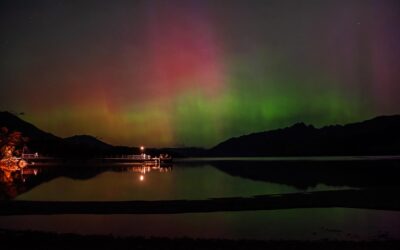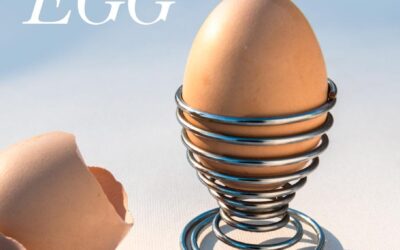Photography restoration project
The Glenorchy Museum recently obtained a couple of boxes of 140 year old glass plate negatives and I have been asked to photograph them, print and restore them as much as possible. With a view of perhaps making replicas of the plates them selves.

The glass plates were very dirty and needed to be carefully cleaned. The emulsion side wasn’t touched as I don’t know enough to do it properly, but the glass side was carefully cleaned with distilled water several times and then carefully with IPA to make sure the glass was both clean and dry before the next step.

There are two ways to get a positive image from the old glass plate negatives. You can scan them in an ordinary scanner, or put them on a light box and take photographs. Since I have a light box, and I want to print these at a later stage, I chose to take photographs.

I could then bring them into lightroom and photoshop and see what we had.
Some of the plates were badly damaged and two were broken so a lot of restoration work will be needed

The importance of glass plate negatives
Here’s why restoring these old glass plate negatives is so important. This is one of the surviving prints we have of the Queenstown flood of 1878. Even with sharpening and adjusted contrast the image is still a poor quality.
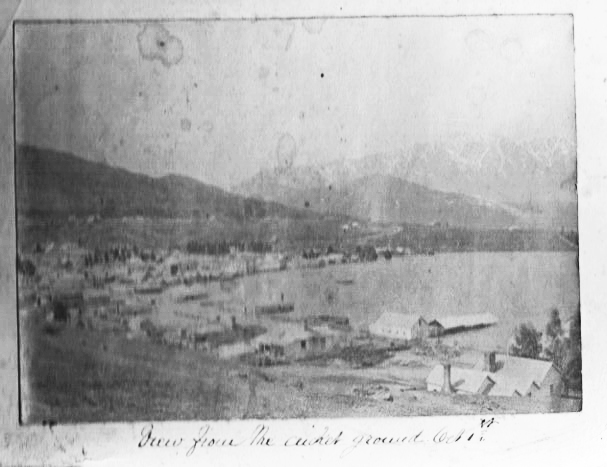
The Photographer F. Finch and the Queentown floods
Poster advertising the photos of the floods by the photographer

You can learn more about Frederick Finch from his obituary at the papers past website
I was delighted to find a slightly different view in one of our glass plate negatives. Although badly damaged, the detail you can get from this is astounding.

Detail the maybe even the photographer didn’t know. As I was working on restoration I found what looks like a figure standing in the flood water at the edge of the lake looking out over the bay (see arrow)
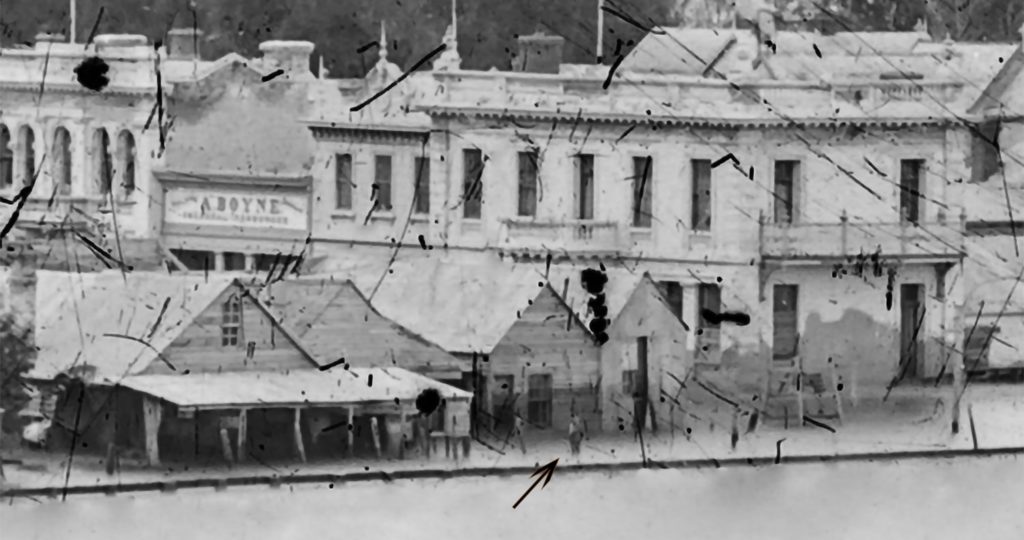
I love the detail of the horse and cart. The horse must have been a bit fidgety as he is blurry while the house is super sharp.

Glass plate negative of Early Queenstown
This is a restoration of the Ballarat St glass plate negative. Although the church is no longer there, some of the buildings further down, what is now the mall in Queenstown, are still standing.

Again, the details here are wonderful. This group have obviously been asked to be in the photograph, and they know they are supposed to stand still for the long exposures those early cameras needed. I love how everyone has a hat, and young lads seem to be making an effort to be super cool, hats tipped just so.

Long exposures do make for some unintended ghosts. This looks like some young children walking down the street while the photograph was being made. A young girl carrying a parasol? and someone next to her on the inside. Their image starts at the arrow on the right and you can see their feet at the second arrow.
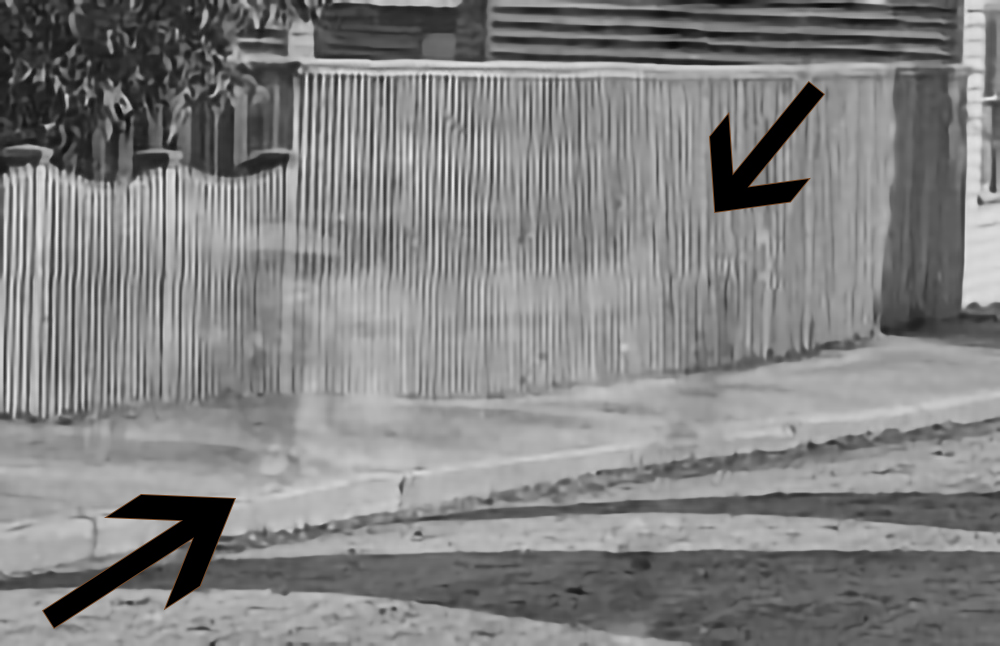
Further down the street we have more groups of people and another ghost. It looks like a boy in a sailors suit to me, but maybe he is just moving. The other group is outside Eichardts hotel just stopping to have a chat. The hotel is still standing today.
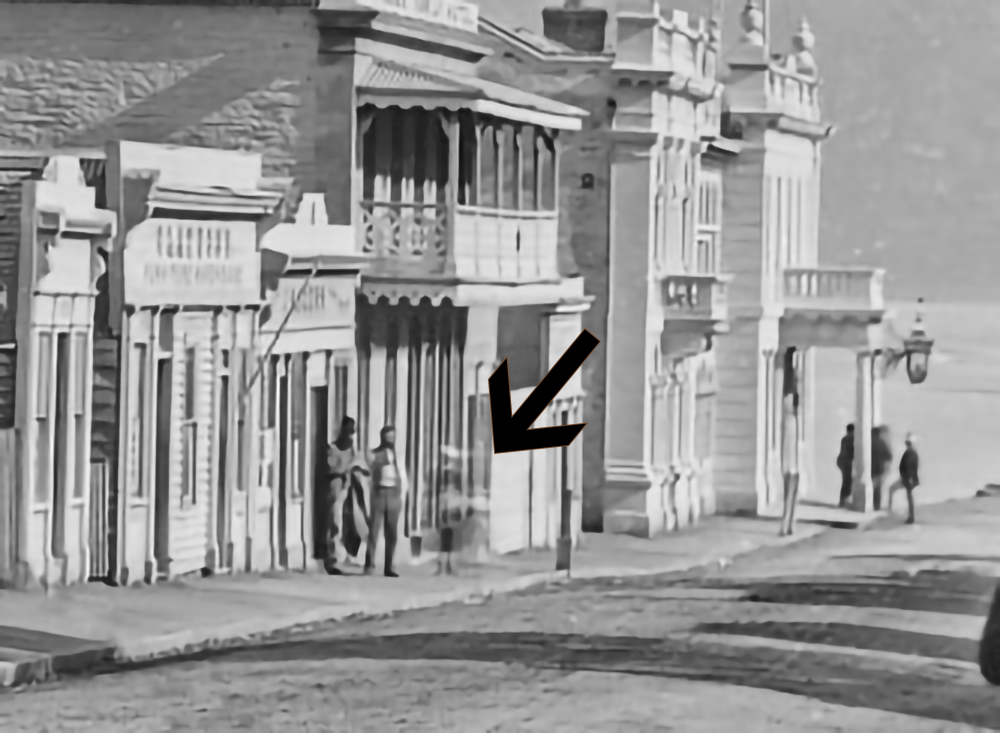
The last group don’t seem to have been aware of the camera, at least at first, as they have moved quite a bit. I wonder what they were talking about. I also wonder if the man on the far right wandered into the frame and stopped when he saw the camera taking a photo, or if he turned around half way through the process and took off when he realised what was going on. There is possibly another figure behind the two gentleman, and a blur on the street between the two men that may or may not be something as well.

All in all, it is a fascinating glimpse into history, and I have many more images to get through.
